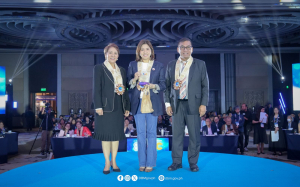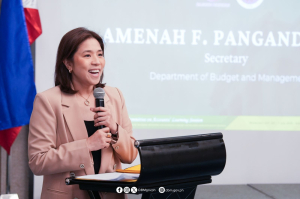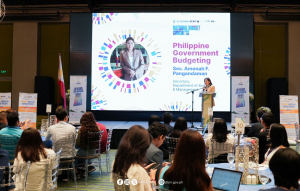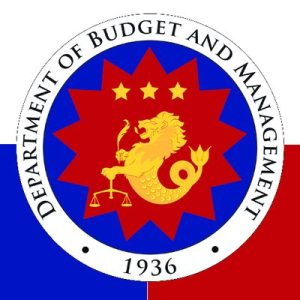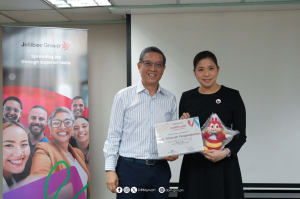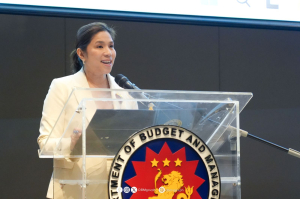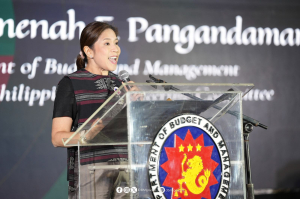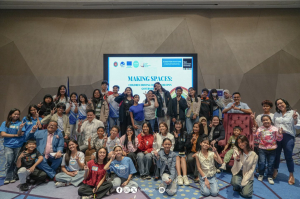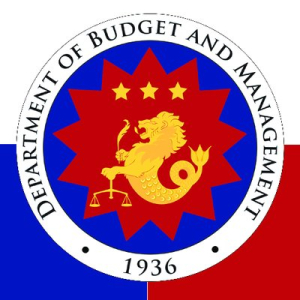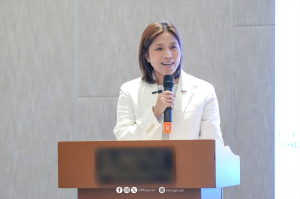
- Details
OGP Asia and the Pacific Regional Meeting Breakout Session
February 7, 2025 | 9:00 - 10:30 AM
Grand Hyatt Manila

Distinguished leaders and members of the government and civil society from Asia-Pacific and beyond;
Fellow advocates and champions of open governance and the Women, Peace, and Security (WPS) Agenda:
Good morning! Magandang umaga po.
Assalamu alaikum wa Raḥmatullahi wa Barakatuh.
First, allow me to express my gratitude to the UN Women for co-organizing this breakout session with the Department of Budget and Management at this very opportune time: the OGP Asia and the Pacific Regional Meeting hosted for the first time by the Philippines.
We are honored to be joined by local and international experts, each bringing valuable experience in governance, research, international cooperation, and community engagement. Thank you for heeding the call to share your best practices and unique perspectives as we address the challenges hindering the advancement of the WPS Agenda.
While 13 countries in our region have adopted National Action Plans on WPS, UN Women reports that there are still critical gaps between the commitments and the actual implementation of WPS initiatives, threatening to undermine our progress toward a peaceful and gender-responsive region.
We are also at a pivotal moment where conflict extends beyond war and manifests in our daily lives in the form of non-traditional security issues such as climate change, cybersecurity, and violent extremism. These challenges are less visible, but they pose significant threats to peace and security, with women disproportionately bearing the impact.
But while we acknowledge the gravity of these challenges, we must not let them distract and stop us from achieving our targets. After all, our region has already made great strides toward building an open, inclusive, and peaceful society.
According to the most recent Global Gender Gap Report, Eastern Asia and the Pacific ranks fourth globally, with an overall gender parity score of 69.2 percent. New Zealand holds the fourth spot, followed by OGP member countries such as Australia, which ranks 24th, and the Philippines, which ranks 25th.
We are also proud that in the report's educational subindex, which captures the gap between women's and men's current access to education, four OGP Asia-Pacific member countries rank first with a perfect score of 100 percent! These are Maldives, Mongolia, New Zealand, and the Philippines. This is a testament to our commitment to ensuring that open governance translates into open opportunities for all, leaving no one behind.
In the Philippines, we introduced “The Women’s Budget,” or the Gender and Development (GAD) Budget, as early as 1995, mandating all departments and agencies up to the Local Government Units to allocate a minimum of five (5) percent of their annual budgets for gender programs. This was further institutionalized through landmark laws and frameworks such as the Magna Carta of Women and the Gender Equality and Women’s Empowerment (GEWE) Plan.
Beyond the GAD budget, we are also championing the WPS Agenda through programs that uplift the living conditions of women, including economic empowerment, education, and climate crisis protection.
We are also implementing programs that strengthen peacebuilding initiatives, reconstruction, and development in conflict-affected areas, especially in BARMM, such as the Normalization Program and the PAyapa at MAsaganang PamayaNAn (PAMANA) Program.
And we don’t stop there. Aside from funding and implementing these initiatives, we are creating spaces where the WPS Agenda is discussed and prioritized.
In fact, we recently hosted the first-ever ministerial-level, International Conference on the WPS Agenda in October 2024. As the first female Muslim Budget Minister of our country, I am especially grateful for these opportunities to bring to light the transformative power of providing spaces for women in decision-making tables and high-level discussions.
This brings us to where we are today, the OGP Asia and the Pacific Regional Meeting—engaging in meaningful discourse and identifying actionable steps to harness open governance in advancing women's participation in peace and security processes.
May this session empower all of us to lead the charge for the Women, Peace, and Security Agenda within our communities and across borders. Together, let us translate our shared vision of a gender-responsive, peaceful, and open Asia-Pacific region into a reality. Insha Allah.
Thank you very much.
Wabillahi Tawfiq Wal Hidaya, Wasalamu alaikum wa rahmatullahi wa Barakatuhu.
END
References:
https://www.weforum.org/publications/global-gender-gap-report-2024/
https://asiapacific.unwomen.org/en/focus-areas/peace-and-security/national-action-plans

- Details
OGP Asia and the Pacific Regional Meeting High-Level Roundtable
February 6, 2025 | 12:00 PM
Grand Hyatt Manila

To the Open Government Partnership (OGP) Chief of Global Programs, Mr. Paul Maassen, members of the Philippine Cabinet, distinguished delegates, civil society leaders, and fellow champions and advocates of open government and good governance:
Assalamu alaikum wa Raḥmatullahi wa Barakatuh.
Thank you for attending the OGP Asia and the Pacific Regional Meeting 2025!
This ministerial roundtable is a space for us to share concrete commitments and strengthen our resolve to build a lasting legacy and a better future for our peoples and for our community of nations. Our participation in this high-level gathering is most impactful as we need your decisive, action-oriented, and steadfast leadership in upholding our pledges to our peoples.
We need this kind of strong leadership now, more than ever, as we navigate complex global and regional transitions: geopolitical shifts, evolving trade landscapes, economic uncertainties, rapid technological advancements, and escalating environmental challenges. While these transitions cast shadows of instability, they also shed light on the growing demand for open and accountable governance.
This is the driving force behind the Open Gov Challenge, to which our region—I am happy to note—has responded positively. For instance, 1Mongolia has amended its law to enable the development of an online platform that publishes political party financial data, providing public oversight and increasing citizens’ trust in the government.
2Armenia has established regulations for public officials’ acceptance of gifts, and developed a digital gift declaration that the citizens can access and monitor.
We are also proud that two of our local government units (LGUs) have responded to the challenge. Baguio City institutionalized a People’s Council to recognize and formalize Civil Society Organizations’ (CSOs) significant role in local decision-making processes.
And the Municipality of Larena in Siquijor has committed to establishing a Procurement Oversight Team (POT) through an Executive Order aligned with our New Government Procurement Act, aimed at improving efficiency and transparency in procurement processes.
These are just a few of the commitments that contribute to truly achieving, slowly but surely, good governance for our people. But we also know that we need more ambitious undertakings pledged through the Open Gov Challenge if we want to make governments work for all—not just for the powerful.
So today, as one OGP community, let us take this opportunity to assess our current priorities, identify enabling conditions for these commitments to deliver tangible results, and build genuine partnerships to ensure the success of our reforms.
As we present our interventions at this ministerial roundtable, let us honor their trust and ensure that the promises we make today translate into tangible actions that produce meaningful change in the lives of our constituents. Let us remember that our people are counting on us—WE MUST NOT LET THEM DOWN.
Thank you very much and we look forward to discussing our current ambitions and priorities, the enabling conditions to raise these ambitions, and building partnerships and collaborations.
Wabillahi Tawfiq Wal Hidaya, Wasalamu alaikum wa rahmatullahi wa Barakatuhu.
END

- Details
OGP Asia and the Pacific Regional Meeting Opening Plenary
February 6, 2025 | 9:00 AM
Grand Hyatt Manila

His Excellency, President Ferdinand R. Marcos Jr.—the driving force behind the institutionalization of Open Government Partnership (OGP) in the Philippines;
Archbishop Charles John Brown and members of the Diplomatic Corps;
Supreme Court Chief Justice Alexander G. Gesmundo;
Speaker of the House, Martin G. Romualdez;
Fellow ministers from around the world and colleagues in the Philippine Government;
Champions of open government in civil society and distinguished guests from around the world;
Magandang umaga! Good morning! Mabuhay!
Assalamu alaikum wa Raḥmatullahi wa Barakatuh.
Welcome to the 2025 OGP Asia and the Pacific Regional Meeting! We are so honored to have you all at this gathering of visionaries, reformers, and changemakers who believe in and fight for a world where transparency is the norm, accountability is a commitment, and citizen participation is a right, not a privilege.
I started my term as part of the OGP Steering Committee, representing the Philippines, just last October. So I can't believe we are hosting this monumental event in just a little over three months since joining the SteerCom! But we are grateful and excited because seeing all of you here, I know we are off to a good start in making the message of Open Government reverberate not just in our country but across the Asia-Pacific Region and beyond!
We are also very privileged today to welcome our incoming OGP Chief Executive Officer, Mr. Aidan Eyakuze. This is historical because it is his very first regional meeting! Thank you, Sir! This marks the beginning of a new era in Open Government!
Aidan, we have our work cut out for us but we stand ready to push the Open Government agenda alongside you, especially here in the Asia-Pacific.
Speaking of which, we have a lot to aspire for in terms of the Open Government Challenge. In the Philippines, we are proud to share that based on the latest Open Budget Survey, the Philippines ranked No. 1 in Asia in Fiscal Transparency.
We have also enacted the New Government Procurement Act which has been hailed as the biggest anti-corruption measure in the country’s recent history, as it introduces open contracting, disclosure of beneficial ownership information, and public participation at all levels of the procurement process, in sync with Open Government values.
I am particularly impressed with our very own Procurement Service for taking our anti-corruption efforts a step further through their submission of an ambitious commitment in the OpenGov Challenge.
I likewise commend the local governments of Baguio and Larena for also taking on the challenge. Sana po ay dumami pa kayo!
At the same time, we are eager to listen and learn as well from the OGP journey of Georgia, Armenia, Australia, Indonesia, Mongolia, and Papua New Guinea, who all developed platforms for citizens to better understand the government budgets and processes, and report concerns about public services, among other achievements towards transparency and accountability.
In terms of regional commitments, we look forward to the Republic of Korea opening and expanding administrative appeals, Sri Lanka and the Kyrgyz Republic strengthening their Right to Information frameworks, and New Zealand implementing its algorithm charter.
Finally, we proudly welcome our two newest members, Maldives and Timor Leste! Thank you for joining the Partnership and recognizing the OGP values as the cornerstone of democracy.
On a side note, may I just share that in the spirit of inclusivity and sustainability, for your welcome kits, we tapped Persons Deprived of Liberty in Quezon City—a local government unit that just last year became a member of the OGP Local Program—as well as our artisans in the province of Bulacan to repurpose some 2,800 square feet of used tarpaulins into tote bags that you have right now. Inside those tote bags is the Auro Chocolate, our internationally acclaimed chocolate brand, which works directly with local farmers. We also exerted our best effort to make this event paperless! Please explore our mobile application to learn more and connect with fellow Open Government champions.
I hope you are all as excited as we are to join the conversation, raise ambitions for our peoples, and strengthen our collaborations.
In Tagalog, our native tongue, the word open translates to “bukás.” And tomorrow or the future translates to “bukas.” So remember: let us be “bukas” for a bright “bukas.” Let's all be open for a bright future for all.
Now, may I present a short video on our OGP journey in the Philippines. We hit the ground running as a founding member in 2011 and as you will see, we have been working tirelessly to inculcate Open Government values in our country.
As Sanjay Pradhan said, Open Government is in the Philippines’ DNA. We hope that our journey of OGP story will inspire others to take the same path, or better yet, improve on what we have already achieved.
Once again, welcome to the Philippines, dear Partners for Prosperity! Mabuhay!
Wabillahi Tawfiq Wal Hidaya, Wasalamu alaikum wa rahmatullahi wa Barakatuhu.
END

- Details
OGP Asia and the Pacific Regional Meeting 2025 (Side Event)
February 5, 2025 | 9:00 AM
Grand Hyatt Manila

To my colleagues in the Philippine Government, especially in the Procurement Service - Department of Budget and Management (PS-DBM);
Representatives from development organizations, including the United Nations Development Programme (UNDP);
Civil society leaders, global and regional partners, and policymakers from across Asia and the Pacific;
Our friends from the Bangsamoro Autonomous Region in Muslim Mindanao (BARMM), Minister of Finance, and Budget and Management, Atty. Ubaida C. Pacasem;
Thank you for coming! Good morning.
Assalamu alaikum wa Raḥmatullahi wa Barakatuh.
Finally, the moment that we have been waiting for is here and I am honored to say—welcome to the 2025 Open Government Partnership (OGP) Asia and the Pacific Regional Meeting and this side event on Transparency in Public Procurement.
There will be many discussions at the meeting. We have around 35 side events, 20 interactive breakout sessions, and three high-level roundtable and plenary discussions, to be joined by more than a thousand participants from 43 countries.
But this one especially means a lot to me because as some of you know, procurement reform was number one on my agenda from my very first day as Budget and Management Secretary and to be able to present our New Government Procurement Act (NGPA) now to the world as one of the best practices in procurement reform really makes me proud—proud as a public servant and proud as a Filipino.
As we all know, procurement is one of the governance aspects most prone to corruption. The United Nations Office on Drugs and Crime (UNODC) reported that almost 50 percenti of the world’s annual government spending goes to public procurement projects, making it an easy and widely available conduit for corruption. Thus, enhancing transparency in procurement is the first line of defense against such schemes that threaten the integrity of our public procurement and our government.
Today, I am proud to share that the Philippines has already made a mark in history with the signing of the NGPA by President Ferdinand R. Marcos, Jr. in July 2024—less than a year after I presented this as one of the reforms that the new administration was working on at the OGP Global Summit in Tallinn, Estonia, noting that the NGPA amends our 20-year-old Government Procurement Reform Act (GPRA).
After passing the law, thanks to the hard work and collaboration of the DBM, Procurement Service-DBM, and the Government Procurement Policy Board-Technical Support Office (GPPB-TSO), we have already approved the Implementing Rules and Regulations (IRR) of the NGPA, aptly hailed as the biggest anti-corruption measure in the country’s recent history.
So now, allow me to present how the NGPA strengthens and modernizes the procurement system, enhances the participation of the civil society and the private sector at all stages of the procurement process, and combat corruption towards a more transparent, accountable, and efficient bureaucracy.
Strengthening Systems
Towards bureaucratic efficiency, the NGPA strengthens the country’s digital capabilities, allowing procuring entities to just “Add to Cart,” similar to e-commerce platforms such as Lazada, Shopee, or Amazon.
Last December 2024, the PS-DBM officially launched the Philippine Government Electronic Procurement System or the PhilGEPS’ eMarketplace which significantly reduces procurement timeline and costs and improves transparency and accountability.
To streamline the whole process, the modernized PhilGEPS also includes electronic bidding and electronic payment facilities, allowing for an end-to-end electronic procurement process that improves the timely delivery of public services and budget utilization.
Moreover, the digitalization of the procurement process provides an audit trail of electronic payments and transactions so that we can monitor irregularities. It also allows us to leverage data analytics and formulate evidence-based policies to guide and improve procurement planning.
These advantages and benefits could be attested by our counterparts in South Korea and Indonesia, which also operate their respective electronic procurement systems, namely, the Korea ON-line E-Procurement System (KONEPS) and the E-Katalog.
I am also happy to share that all these are reinforced by our various digitalization efforts. In October 2024, we endorsed to the President the Public Financial Management (PFM) Reforms Roadmap 2024-2028, our blueprint for modernizing and harmonizing our PFM system, including public procurement as one of the strategic focus areas.
Enhancing Citizen Participation
Our efforts to strengthen our systems through digitalization come alongside the need to enhance citizen participation in public procurement activities.
To uphold participatory procurement and integrate feedback mechanisms, we will collaborate with our civil society organization (CSO) partners who will be invited as observers in procurement proceedings.
Having independent oversight as an additional layer of protection ensures that public funds are safeguarded against unethical spending and corrupt practices.
We will likewise ensure that all stakeholders have access to procurement information.
This landmark reform promotes open contracting which enables disclosure of data and documents at all stages of procurement, from planning to contract implementation. Through this, we can say that we are truly at par with global best practices since open contracting is recommended by international bodies such as the European Commission, the World Bank, and the United Nations, among others.
Moreover, we now require the beneficial ownership information of suppliers, manufacturers, distributors, contractors, and consultants, which will be accessible to the public through an online registry maintained by the GPPB. This will ultimately prevent and mitigate the risk of conflicts of interest and corruption.
Closing
In closing, true to the theme of this side event, transparency in public procurement is sustained by strengthening systems, enhancing citizen participation, and encouraging private sector engagement. These are vital for restoring public confidence in governance in issues of corruption.
To this end, let us continue the discussion on strengthening the integrity of our respective public procurement systems.
I am especially grateful for our speakers. Aside from the Philippines’ very own PS-DBM, we also learned from the representatives from South Korea’s Public Procurement Service (PPS), and Indonesia’s National Public Procurement Agency, more commonly known as LKPPii. We also heard from our OGP champions from the Bangko Sentral ng Pilipinas or the Philippine Central Bank representing the government sector, WeSolve Foundation representing the civil society, and Toyota Motor Philippines representing the private sector. With these incredible speakers, the discussions today definitely gave us great insight on how to improve and best utilize procurement systems from a global perspective.
As you know, the NGPA will only succeed through collaborative governance and a whole-of-society approach. So we must embrace this Partnership to build trust and demonstrate integrity in a nation where citizens can rely on the transparent, accountable, and efficient use of government resources geared towards a truly inclusive and sustainable economic transformation.
Thank you again, and we look forward to seeing you at the other side events and our plenary discussions.
Wabillahi Tawfiq Wal Hidaya, Wasalamu alaikum wa rahmatullahi wa Barakatuhu.
- END -

- Details
OGP Asia and the Pacific Regional Meeting
Grand Hyatt Manila

To our Executive Secretary, Honorable Lucas P. Bersamin;
Excellencies;
My esteemed colleagues in the Cabinet;
Distinguished guests;
To our fellow champions and advocates of open government and good governance from the Asia-Pacific and beyond, mabuhay!
Thank you for flying all the way here to Manila for the 2025 OGP Asia and the Pacific Regional Meeting!
I am Budget and Management Secretary Amenah F. Pangandaman, Chair of the Philippine Open Government Partnership, and we are all excited to welcome you to our beautiful country.
I come from the Southern part of the Philippines, which is predominantly Muslim, so allow me to also greet you:
Assalamu alaikum wa Raḥmatullahi wa Barakatuh.
We have a lot in store this week! We have around 35 side events, 20 interactive breakout sessions, and three high-level roundtable and plenary discussions, to be joined by more than a thousand participants from 43 countries.
But for tonight, PLEASE—sit back, relax, and enjoy the view at the Garden Pavilion of the Grand Hyatt Hotel here in Bonifacio Global City, a cosmopolitan city with a rich history spanning more than a century.
But as we admire the view, let us also exchange views. Let us seize this opportunity to exchange valuable insights, explore new horizons, or simply get to know each other and how we share the same goal of pushing for transparency, accountability, and citizen participation in our own governments.
Tonight, we are a united community dedicated to advancing our shared advocacy of open governance both on a national and global scale.
And so let us raise our glasses to the spirit of collaboration and to the better governance which no other than our guest of honor can attest to.
It is my privilege to introduce our dearest Executive Secretary, former Supreme Court Chief Justice, Honorable Lucas P. Bersamin, who will deliver the keynote speech this evening.
Thank you.
END
